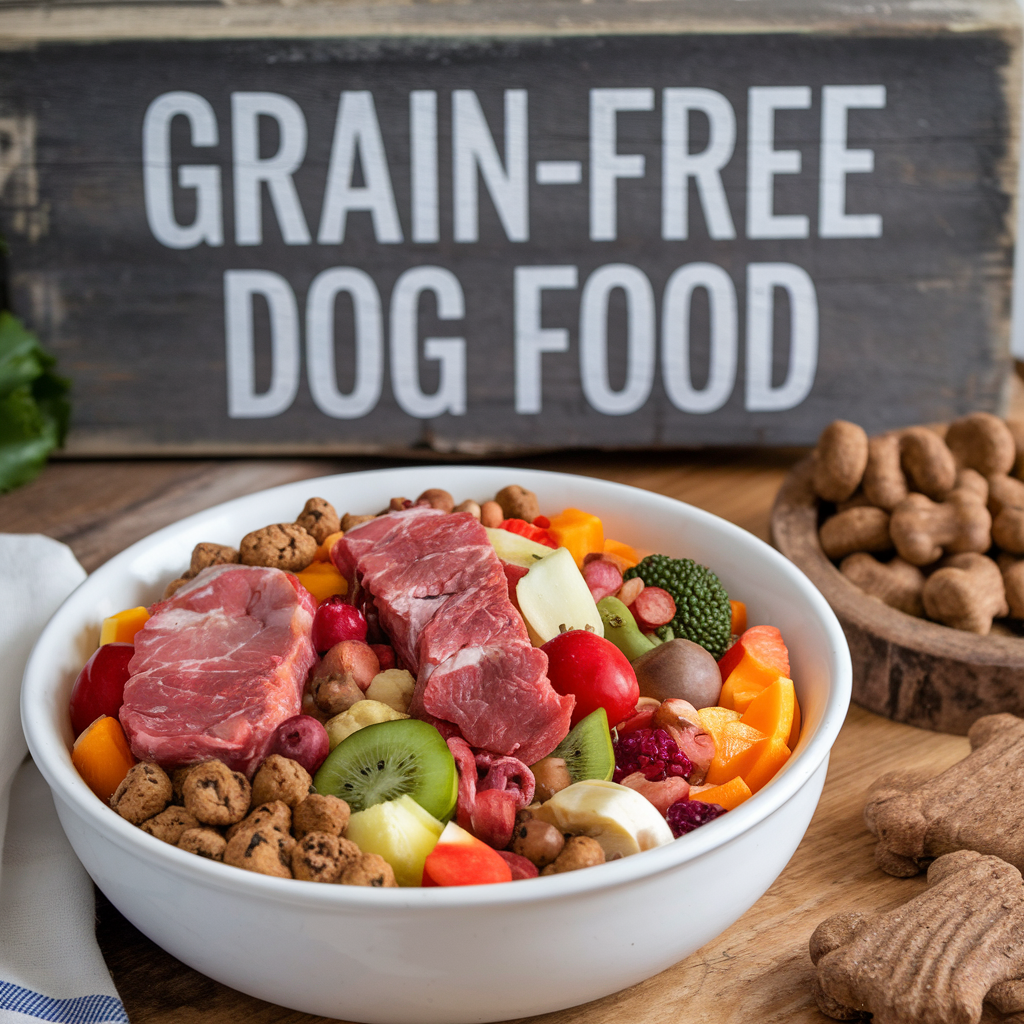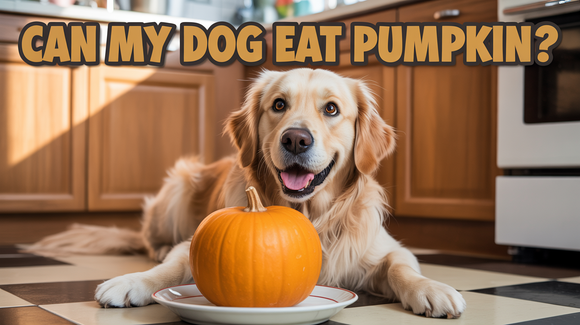
Grain-Free Dog Treats: Are They Necessary for Your Dog?
Alice Lopez
Grain-Free Dog Treats: Are They Necessary for Your Dog?
The pet food industry is always changing, and grain-free dog treats are more popular than ever. But do your dogs really need them? Let's dive into the world of grain-free dog treats and see if they're a must-have or just a trend.
Key Takeaways
- Understand the rise of the grain-free pet product trend
- Explore the potential health benefits and risks of grain-free dog treats
- Discover natural alternatives like turkey tendons and other protein-rich options
- Learn how to transition your dog to grain-free treats effectively
- Recognize the signs that your dog may need grain-free treats
Understanding the Grain-Free Dog Treat Movement
The need for grain-free pet products is growing fast. People are learning about the health benefits of removing grains from dog food. But what makes a dog treat "grain-free," and why are they so popular now?
What Makes a Treat Grain-Free?
Grain-free treats don't contain common grains like wheat, corn, or rice. Instead, they use ingredients like sweet potatoes or legumes for nutrients.This makes them a natural, easy-to-digest choice for dogs with grain allergies or sensitivities.

The Rise of Grain-Free Pet Products
The popularity of grain-free pet products comes from several reasons. Pet owners want natural, whole foods for their pets. They also believe a grain-free diet may be good for dogs with health issues like skin problems or digestive issues.
Health Benefits and Risks of Grain-Free Dog Treats
Grain-free dog treats are getting more popular. It's key to know the good and bad sides of them. They might help dogs with allergies or sensitivities. But, they could also be missing important nutrients.
One good thing about grain-free treats is they help dogs with gluten or wheat issues. These can upset a dog's stomach. Grain-free treats might also help dogs with skin allergies by removing allergens from their diet.
Before switching to grain-free treats, talk to your vet. They can check if it's right for your dog. They'll help pick the best food for your dog's health.

A balanced diet is essential for a dog's health, and it's important to carefully consider the nutritional implications of any dietary changes, including the use of grain-free treats."
Knowing the details about grain-free dog treats helps pet owners make better choices. This ensures their pets stay healthy and happy for a long time.
Current Market Trends
The trend in dog treats highlights a growing interest in grain-free options, with major pet food brands now offering a wide range of grain-free and high-protein treats, such as Turkey Tendon. This shift reflects an increasing awareness among pet parents about providing high-protein diets to support their furry friends' health and well-being.

|
 |
Natural Alternatives: Turkey Tendons and Other Protein-Rich Options

Pet owners are looking for natural treats for their dogs. Turkey tendons are a great choice. They are full of protein and good for dogs.
Benefits of Turkey Tendons
Turkey tendons are packed with protein and amino acids. They are a healthy treat for dogs. Unlike many commercial treats, turkey tendons are natural and don't have fillers or artificial preservatives.
They help keep your dog's teeth clean and satisfy their urge to chew. Plus, they are low in calories and last a long time.
Popular Protein-Based Alternatives

There are other protein-rich treats besides turkey tendons. Turkey jerky and natural dog chews made from beef, chicken, or bison are good choices. They offer similar health benefits.
Signs Your Dog Might Need Grain-Free Treats
Grain-free pet products are getting more popular. Pet owners wonder if their dogs need them. Grain-free treats might be good for some dogs, but not all.
One sign is dog food allergies or canine sensitivities. If your dog has skin issues, ear infections, or stomach problems, it could be due to grains. Watch how your dog reacts to regular treats to spot any sensitivities.
Dogs with grain intolerance might feel uncomfortable. They could have a lot of gas, feel bloated, or have diarrhea after eating grain-based treats. If you see these signs, trying grain-free treats might help your dog feel better.
Knowing these signs can help you decide if grain-free treats are right for your dog. Always talk to your vet before changing your dog's diet.
Choosing grain-free treats should be based on your dog's needs and your vet's advice. Watch how your dog reacts and feels to make sure they get the best diet.
How to Transition Your Dog to Grain-Free Treats
Changing your dog's diet is a careful step, especially when moving to grain-free treats. With the right steps and vet advice, you can ease your dog into a healthier treat routine.

Step-by-Step Transition Guide
- Start Slow: Mix the new grain-free treats with your dog's old treats at a 25% to 75% ratio. Gradually increase the new treats over 1-2 weeks.
- Monitor Your Dog's Response: Watch your dog's eating, digestion, and mood during the change. Look for any signs of upset stomach or allergies.
- Adjust the Transition Pace: If your dog shows bad reactions, slow down the change. Talk to your vet for advice.
- When to Consult Your Vet: If your dog keeps having tummy troubles or other issues during the dog diet transition, see your vet. They can offer veterinary advice for dog diets and figure out what's wrong. This ensures your dog stays comfortable and healthy. By taking it slow, watching your dog, and getting vet help when needed, you can smoothly switch your dog to grain-free treats. This change will support their health and happiness.
Conclusion
The rise of grain-free dog treats has changed the pet food world a lot. Grain-free options like turkey tendons might be good for some dogs. But, it's important to change your dog's diet carefully and with your vet's help.
If you want healthy chews for your dog, there are many protein-rich options. These can be good for your dog and meet their natural chewing needs. Knowing what your dog needs helps you choose the right treats.
Thinking about the benefits of grain-free treats and healthy snacks is key. With some research and advice from your vet, you can find the best treats for your dog. This helps keep your dog healthy and happy.
FAQ
Is a grain-free diet good for dogs?
Research on grain-free diets for dogs is ongoing. Some dogs might do better without grains due to allergies. But, not all dogs need a grain-free diet. Always talk to your vet to see if it's right for your pet.
What are the benefits of turkey tendons for dogs?
Turkey tendons are an excellent treat for dogs. They’re high in protein, low in fat, and help keep teeth clean by reducing plaque and tartar. These long-lasting chews provide mental stimulation and keep dogs happily engaged while they enjoy chewing.
What are some other healthy treat options for dogs?
Besides turkey tendons, dogs can enjoy Turkey Jerky Chips,Sweet Potato Chews, and dried meat or fish. These treats are full of protein. They also help keep teeth clean and keep dogs entertained.
Are natural chews safe for dogs?
Natural chews like turkey tendons are usually safe for dogs. But, you should watch them to avoid choking hazards or digestive problems. Choose high-quality chews from trusted brands.


